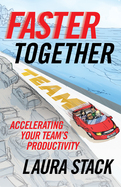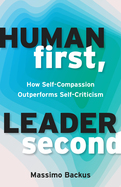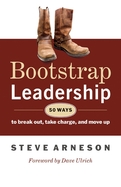We all have times in our lives when the results of our behavior don't seem to be meeting our needs. In this new book, Hyrum Smith does two things that are invaluable to people who wish to make their lives less painful. First, he reveals, through a clear and simple model, how we get to the point where our behaviors cause these kinds of problems. Then, with a simplicity that is impressive in itself, he describes the steps we must take to identify and rectify the beliefs leading to our painful behavior. The result is a powerful process for transforming your habits and relationships and achieving lasting personal and career success.
This master reference — in its fifth edition — contains everything you need to know about government pricing rules and regulations in one easy-to-use volume.Guide to Contract Pricing: Cost and Price Analysis for Contractors, Subcontractors, and Government Agencies, Fifth Edition, explains how the government conducts business and walks you through every step of the contracting process. This fully updated edition includes a new chapter on the role of auditors in contract pricing as well as five new detailed appendices.
You'll be able to:
+ Master the steps of the sealed bid process
+ Improve your skills at evaluating bids, proposals, and quotations
+ Perfect your ability to analyze direct and indirect labor costs
+ Improve your chances for securing a fair and reasonable price
2018
Accelerating Your Team's Productivity
There are more roadblocks to productivity today than ever before. Everyone who works must deal with countless emails, constant communication, cascading deadlines, and seemingly endless meetings. These can be managed efficiently, or they can be a huge time suck. When you're surrounded by slow-moving coworkers, you're stuck in a traffic jam of sorts. What makes the difference isn't individuals working harder or faster or smarter but “teaming well.”
You have at your disposal what Stack calls “the most powerful productivity machine in existence”: your team. Individual productivity is just the beginning of business profitability; the real winner is team productivity. A good team can accomplish more, and more quickly, than any one Lone Ranger. Yes, there are always stars—in sports, Peyton Manning, Mia Hamm, and Stephen Curry come to mind—but they couldn't do their jobs without the rest of the team doing theirs.
Bestselling author Laura Stack's FAST model mobilizes teams to be the most effective they can be, while keeping each other's best interests at heart. Using her original model, teams learn to work together Fairly, accept Accountability, apply Systems Thinking, and maximize available Technology. An interactive assessment helps you evaluate your team's current speed and rate of acceleration.
By the end of this book, you'll truly understand the abilities of your team. Team members will ask themselves, “How can I help my team go faster together?” You work to save everyone else time, and they work to save you time. For your business to win, everyone must contribute. As Stack puts it, “Team up; don't slow down!”
So, rev your team's engines, and you'll soon be roaring down the track together!
Through this 6-step framework, leaders will learn that self-compassion is for the strong, to separate their title from their person, and how to care for themselves in order to care for others.
So many leadership and compassion books seek to remind leaders to behave human and treat those around them with care. But the truth is that leaders are human. They're not playing at being human or calling forth their humanity on demand. Their struggle in marrying leadership and compassion stems from leaders ignoring self-care—the lack of compassion toward their subordinates is just a symptom.
Human First, Leader Second introduces leaders to the practice of self-compassion through a 6-step framework designed to ease even the most hard-headed and hard-assed leaders into thoughtful, and productive, introspection.
- Backward: Biography, Biology, Backstory
- Forward: Purpose, Values, Priorities
- Inward: Intentions, Feelings, Thoughts
- Outward: Intent, Actions, Behaviors
- Leeward: Self-care and Personal Accountability
- Wayward: Regret and Self-forgiveness
2011
Takes a stand on a major controversy in academia: should organizational research aspire to be relevant to practitioners?
-
Features a who's who of leading management scholars
-
Takes a stand on a major controversy in academia: should organizational research aspire to be relevant to practitioners?
-
A sequel to the seminal book, Doing Research That is Useful for Theory and Practice, also edited by Ed Lawler, Susan Mohrman, and Associates
For decades there has been an ongoing, at times heated, debate over how relevant to real-world organizational concerns academic organizational research should be. The contributors to this book argue that in order to keep organizational research relevant to both theory and practice, research must deviate from the orthodoxy of traditional positivistic research. The true test of whether knowledge is useful to practice is not whether it is "theoretically" impactful but whether it is theoretically impactful and results in improved organizational effectiveness.
The contributing authors were selected for their demonstrated ability to conduct useful research and their distinguished academic careers. Part I of the book features active scholars who describe the choices they make and the tactics they employ to ensure that their work advances both theory and practice. In part II, four highly respected researchers reflect on how they approached their careers so that they could have a broad impact on practice and still maintain academic rigor. Part III describes pathways to bring academic knowledge to practice-working with consultancies, executive PhD programs, OD specialists, and professional associations, as well as framing academic concepts in ways that are attention-grabbing, memorable, and credible to practitioners. Part IV looks at institutional constraints and enablers: the prospects for useful research in traditional academic settings like business schools, peer-reviewed journals, and the Academy of Management. Finally, part V sums up the themes of the book and the challenges and opportunities facing researchers who aspire to do research that advances both theory and practice.
Chapters available for individual purchase at Fast Fundamentals Whitepapers.
Contributors: Jean Bartunek, Michael Beer, George Benson, John Boudreau, Wayne Cascio, Thomas Cummings, Amy Edmondson, Lynda Gratton, J. Richard Hackman, Gary Latham, Phillip Mirvis, Allan M. Mohrman, David Nadler, James O'Toole, C. K. Prahalad, Denise Rousseau, Sara Rynes, Edgar Schein, Ramakrishnan V. Tenkasi, Michael Tushman, Andrew Van de Ven, Ruth Wageman, Ian Ziskin
2010
- Arneson was named one of America’s top leadership consultants by Leadership Excellence magazine in 2008
- Enables leaders at all levels to design a complete self-directed leadership development program
- Concise, accessible, practical and flexible
Leadership training can be inconsistent in the best of times. In tough economic times it’s often one of the first things that even the most progressive companies cut back on. And you can’t necessarily depend on finding that mentor you’ve been looking for either. Now more than ever, if you’re going to advance your career you need to lift yourself up by your own bootstraps. But not entirely: Steve Arneson is here to give you a boost.
In Bootstrap Leadership Arneson, one of America’s top leadership coaches, offers a complete blueprint for designing your own personal leadership development program. In fifty brief, to-the-point chapters he provides practical ideas and techniques that have been proven successful in his work with executives at Fortune 500 companies like AOL, PepsiCo and Capital One. Surprisingly, most of these ideas cost nothing to implement, nor do they require any elaborate equipment or infrastructure—they’re open to anyone with sufficient initiative, drive and ambition.
The chapters are entirely self-contained and can be read in any order and at any pace. You can read one a week and you’ll have a comprehensive year-long self-improvement program (with two weeks off for vacation). Or you can choose a chapter that speaks to a particular challenge you’re facing at work or one that just seems intriguing. There’s a self-assessment at the beginning of the book to suggest specific chapters that fit your developmental needs.
No one is going to just hand that next promotion. You have to earn it by developing and demonstrating your leadership skills. And ultimately it’s not just about you—true leaders make everyone around them better. Bootstrap Leadership shows you how.























